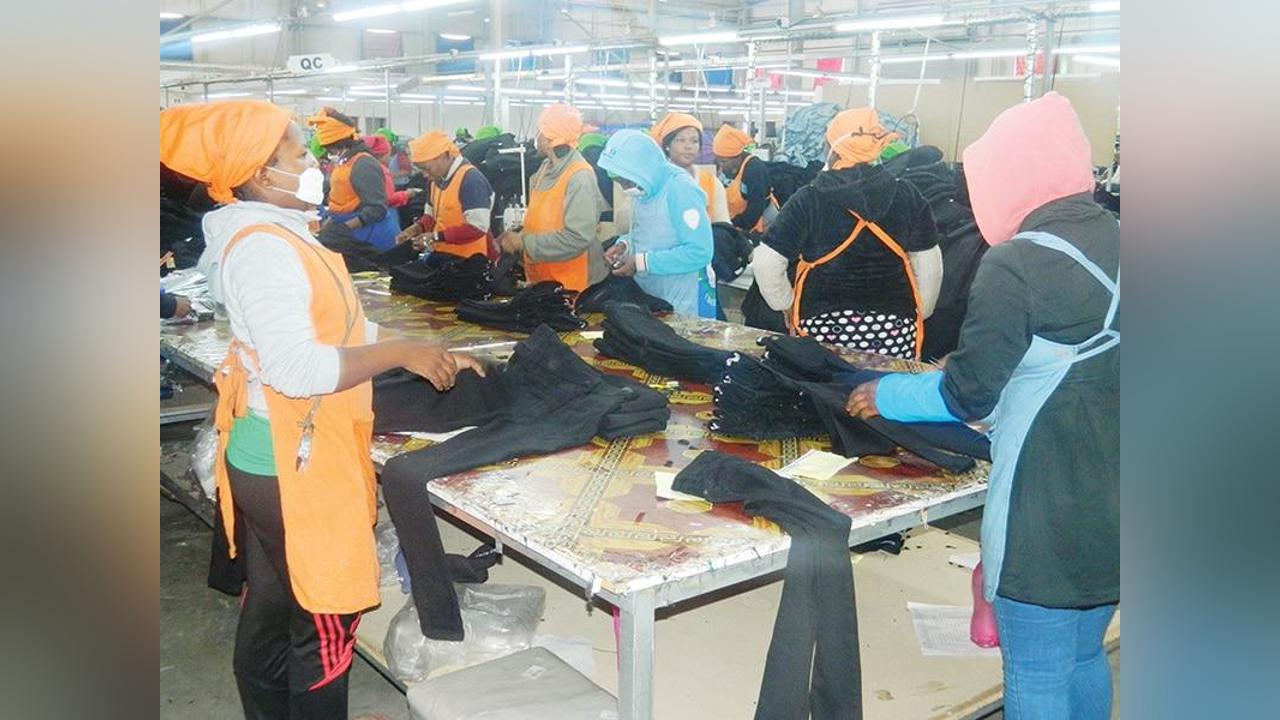Africa-Press – Lesotho. Lesotho is reputed as one of the favourite investment destinations because of its labour is among the cheapest in the world, particularly in the textile manufacturing sector.
Sadly, viewed from inside looking outside the wages offered in this sector fall far short of meeting the basic needs of the workers and their families and in Lesotho, factory workers are among the hardest hit by the poor wages, particularly now as the cost of living keeps escalating.
How they survive on such little income remains the biggest question. The minimum wage for a factory worker in Lesotho remains as low as M1,030 according to the labor code wages amendment of 2014.
The amount – M1,030 – according to the 2014 amendment, is for employees with less than 12 months continuous service with one employer. Factory workers are among the lowest paid worker categories, ranging between M1, 600 and M1, 800 in wages.
Other sectors that are hit the most include domestic workers, with the least paid employee sitting at a shocking M450.00 per month up to M501.00 for those with more than 12 months with the same employer.
Employees in the small businesses are sitting at M823.00 as minimum wage up to M933.00 for those with more than one year of employment. The general minimum wage in 2014 was set at M1,178.00 for those with one year of employment up to M1,285.00 for those with more than one year in office.
Women dominate employment in the textile sector and many of them are married with kids. However, a sizeable proportion of them is fresh from school and do not yet have families of their own. Tertiary graduates have recently flooded the industry due to lack of employment opportunities in the country.
With that scenario in mind, it means for somebody who is earning M1,800 and staying in a rented two roomed house in the outskirt of Maseru, it is obviously difficult to fulfil the needs in their households.
Besides rent for a two-roomed apartment will set the worker back by between M600 to M800.00 of their meagre wage, while transport would also gobble up almost the same amount.
Whatever remains from that same amount of M1, 800 should be able to buy groceries and cater for other important needs in the family. That means for many factory workers, there is little to no room for any form of saving. Ultimately, one could safely conclude that many of them live beyond the proverbial hand to mouth cycle but are in fact mired in debt.
However, following a series of negotiations between government and employers with regard to the salary increment for the factory workers, it is anticipated that wages will be elevated to slightly above M2,000 in all the categories. The government has since promised a 10 percent increase in the sector which employs around 40, 000 workers in the country.
While the 10 percent increment as promised by government is still seen as too little by many and below the international standards, the deputy General Secretary of the Independent Democratic Union Lesotho (IDUL) Mai Rathakane believes it is fairly enough for the workers explaining that they are also satisfied with the projected increase.
After the 10 percent additions to their salaries, the lowest ranked workers in the sector are set to earn around M2,005 according to the deputy General Secretary. The highest paid workers will pocket M2,200.
“Initially, we wanted a 16 percent increase for workers but our suggestion was debated for a long time in the wages board with employers only offering a maximum of 7 percent increase.
“Minister of Labour Keketso Rants’o then had to use her powers to intervene, setting the 10 percent increment which was also appreciated by workers and the general public,” Rathekane said in an interview with Public Eye on Tuesday this week.
The minister also suggested another eight percent increase for other sectors. Government then was given 30 days to implement the recommendations as planned and Rathekane revealed in an interview that the 30-day period ended on April 12.
He said they are now just waiting for the gazette which should be dated April 1. The gazette should be ready by next Friday since the upcoming Friday (tomorrow) will be a holiday.
“The parliamentary council only sits on Fridays, so since this coming Friday will be a holiday we will wait for next Friday for the gazette to be issued.
We are just hoping that the gazette will not come out with anything different from what has been discussed because workers are impatiently waiting for nothing but 10 percent increase,” he added.
After the increase, the highest paid factory workers in Lesotho will still yearn less than the least paid employees in South Africa where M3,500 has been their minimum wage since 2018.
While IDUL has expressed a little satisfaction over the 10 percent issue, the National Clothing Textile and Allied Workers Union (NACTWU) is not happy at all with the little increase, citing that they wanted a 12 percent increase that was promised last year.
With the 10 percent increase NACTWU revealed further that they do not even believe that the highly anticipated gazette will come out outlining issues as discussed, a doubt which was also expressed by IDUL in an interview with Public eye on Tuesday.
“We are not happy at all and we are getting tired of these empty promises by our government.
Last year we were promised 12 percent and it did not happen and now once again they are promising 10 percent of which we are not even sure if they will fulfil their promise,” said Sam Mokhele, the General Secretary of NACTWU.
He said the living wage, according to their own investigations, should be M3, 275. 00 and not M2, 000. Mokhele added, however, that if government fails to fulfil their promise of 10 percent, factory workers who are unhappy already, will bring Maseru to a standstill.
“If it is not 10 percent they will not accept it because they are not happy already,” he added. Indeed, there are mixed feelings regarding the increase even among factory owners themselves.
According to one of the directors at Leo Garments, a factory which employs around 340 employees, the increase has its own challenges on the market even though he agrees that workers need a living wage in order to be productive.
“It is very challenging for us particularly considering issues of production costs which are already high at the moment.
But with this increase, production costs will even be higher,” Lin said in an interview with Public Eye. Currently Lin added that the company operates with around M1.5 million per month in production costs.
He also cited the shrinking international market as another challenge as they are currently getting fewer and fewer orders from the market which is one of the reasons the company has downsized to only 340 people from 700 workers around 2014.
“It is a challenge but we will have to deal with it and always try to improve our production as a company,” he added.
Minister of Trade and Industry Habofanoe Lehana, on the other hand, revealed that the 10 percent increase should be taken positively as factory workers have not enjoyed such increases for a very long time.
“We should take the 10 percent increase as a positive move because, honestly, these people are still not paid well but this little increase is better than none,” Lehana said.
In order to address challenges in high production costs and the shrinking international markets, the minister advised that the industry should not only look to America but consider other destinations such as the European Union as they offer almost similar opportunities as those offered in America.
According to the International Labour Organisation (ILO) the global real wage growth in 2017 was not only lower than in 2016 but fell to its lowest growth rate since 2008, remaining far below the levels obtaining in 2006 or 2007 before the global financial crisis. The slowdown in wage growth occurred in spite of more rapid economic growth in that year.
For More News And Analysis About Lesotho Follow Africa-Press






